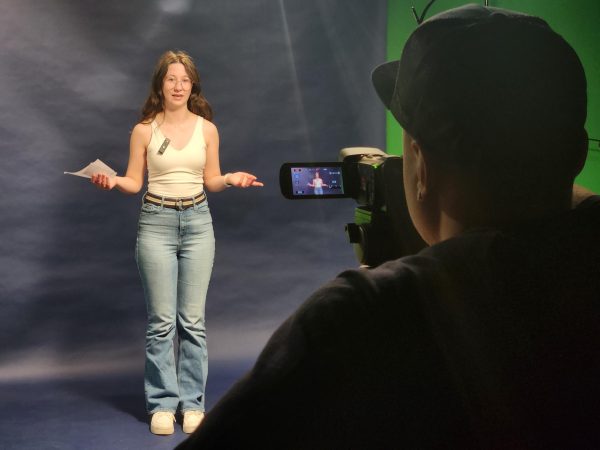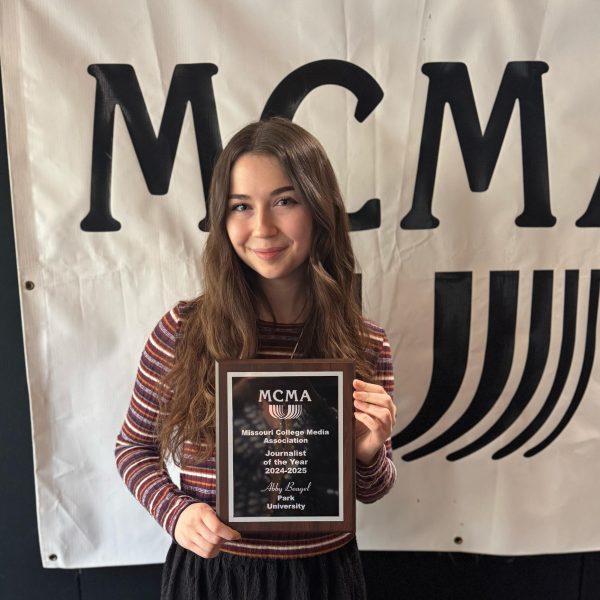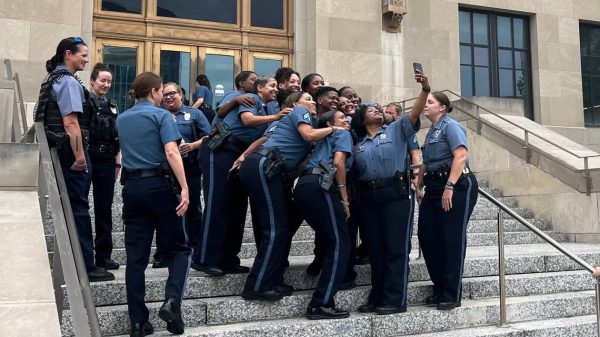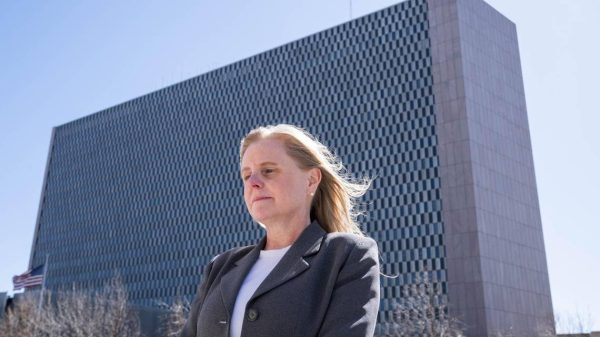Over $370,000 collected in new tech fee
Committee earmarking funds for improvement projects to benefit students
About $370,000 has been collected to date as part of a new technology fee, according to university officials.
Last semester, a $10 per credit hour technology fee was applied to tuition costs to help provide better technology for students at the Parkville, downtown and Independence campus centers.
This fee applies only to students at those three locations. The fee was originally estimated to bring in about $350,000 for the year.
While the $370,000 figure is temporary, a more precise number as well as earnings from the Spring II term will be released to the Technology Fee Implementation Committee, a now standing committee with the Park Student Government Association.
The committee was developed shortly after the technology fee was announced in Fall 2013.
Although the committee is in charge of discussing and suggesting uses for the fee, university officials make the final decisions on how money is ultimately applied, according to David Monchusie, chief information officer for Information Technology Services.
“The committee is faced with implementing the funds collected by the technology fee and prioritizing what areas the money should be spent on,” said PSGA President Jeremy Barnes in an email interview.
The greatest attention, according to Barnes, at this point is on implementing a device rental program; renovating study rooms; providing a charge station for mobile devices or improving electricity supply within classrooms; and hiring a full time IT technician.
“We are pretty short-staffed in IT,” said Monchusie. “We have four technicians that service more than 600 people and take care of more than 2,000 computers.”
Now that a more accurate fee collection amount has been released, these suggestions will begin to come to life as the committee will start asking for estimates from local businesses and suppliers.
“One of our priorities was to get the ball rolling early so students can see their money is being used to improve the overall technological infrastructure on campus,” said Barnes.
Although there may be pressure to get these jobs done, the committee is committed to handling the funds with delicacy, according to Monchusie.
“We will start small and see what the demand is,” said Monchusie. “The idea is not to spend all of the money, the idea is that if you want to do big things you should probably want to keep your money so you can do bigger things,” he said.
“You don’t want to live paycheck to paycheck, if you really do well you’ll save some and that’s what was made clear…what is not spent can build up.”
Among the other things on the to-do list, Monchusie said a rental system for laptops and other similar devices is valuable.
“Not all are equal, many students come here with their own devices and they are some of the best,” said Monchusie.
“And, there are many that I hear that cannot afford it. So a checkout system is really for those people that cannot afford and they need to do something.”
Park is not the first university to make this type of move.
Avila University charges students a $700 per year fee and UMKC rates increase with the number of credit hours. For Missouri residents who take 15 credit hours they can expect to pay $204.00 each semester.
“Other Universities have similar fees…or systems built into their tuitions,” said Barnes.
“And these fees are typically more significant that the one implemented here. We were one of the first institutions to break into the world of online classes, but other schools have caught up,” he said.
For Carissa Belcher, junior graphic design major, she is only in her second semester at Park but has some ideas of where the funds would be put to good use.
“We need better WiFi, especially when we have classes (in the underground) and are down here six hours out of the day and our phones don’t have service.”
As far as noticing the $10 charge pop up on her statement, Belcher doesn’t recall.
“My parents are paying for my tuition, so I feel like (the fee) is not well advertised for my parents,” she said.
Zac Jarrard, senior double majoring in political science and economics also agrees with Belcher that a better Internet provider would be a good idea. But Jarrard also has ideas of his own.
“I work at the Academic support center and maybe finding a better program for students to make appointments and do their online tutoring would be helpful,” said Jarrard.
As far as the potential for a device rental program, Jarrard sees room for added costs as well as room for some savings.
“I think it’s be a good idea but then you’d have to make sure students take care of it and then there would have to be maintenance on it, so that’s an added cost. But (students) could use the tablets to get eBooks and that could save money.”
Throughout the semester the committee will continue to vote on various ideas while researching different costs for each project.
Monchusie said his goal is to start executing these plans before the beginning of the Fall 2015 semester.
Your donation will support the student journalists of Park University. Your contribution will allow us to cover our annual website hosting costs, freeing up other funds for equipment, printing and training.







